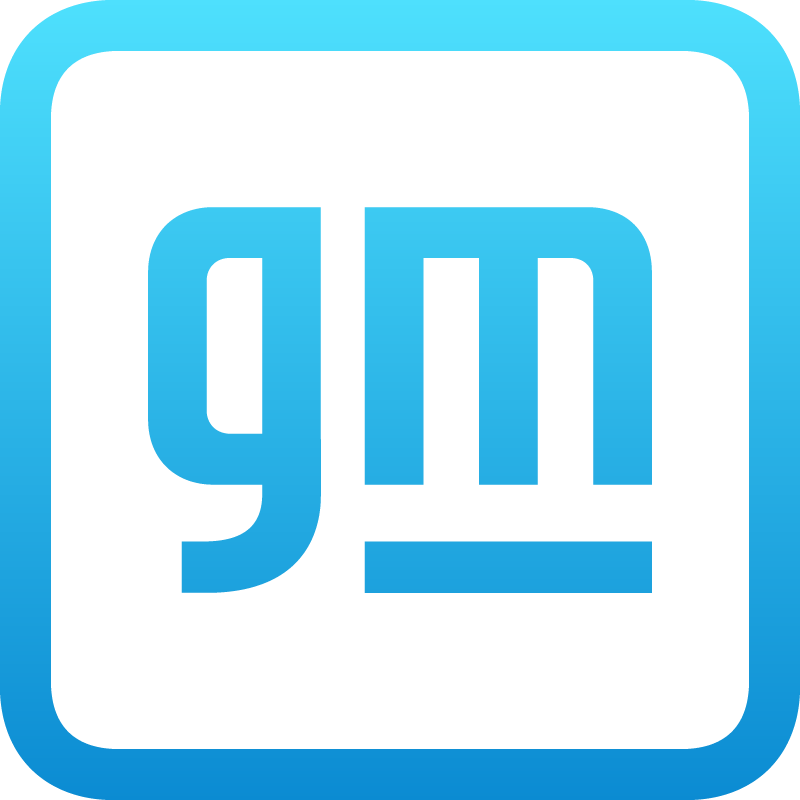High School Workshops
Engineering Outreach at Ontario Tech University offers a variety of workshops for grades 9 through 12. Our workshops target specific curriculum topics and increase student understanding of Science, Technology, Engineering, and Mathematics. Our elementary workshops run in blocks of 75 minutes. All bookings require a minimum of 2 workshops.
Automation and Automotive Workshops
-
mBot Automation Adventure - Food Delivery (Grades 9 - 12)
High school students will embark on an exciting journey into the world of automation and automotive engineering! In this immersive and hands-on experience, participants will explore the cutting-edge technology of mBot robots while simulating a mock food delivery service. This workshop is designed to foster creativity, problem-solving skills, and a deep understanding of automation principles. Students will complete the workshop using block code or Python code.
Delivery Method: Available only In-personCost: Paid - See first page FAQ for prices
-
mBot Automation Adventure - Mission on Mars (Grades 9 - 12)
High school students will embark on an exciting journey into the world of automation, automotive, and aerospace engineering! In this immersive and hands-on experience, participants will explore the cutting-edge technology of mBot robots while simulating a Mission on Mars while retrieving samples for further analysis. This workshop is designed to foster creativity, problem-solving skills, and a deep understanding of automation principles all while incorporating a space theme. Students will complete the workshop using block code or Python code.
Delivery Method: Available only In-person
Cost: Paid - See first page FAQ for prices
Electricity Workshops
-
Pitch Black (Grade 9)
Pitch Black is a workshop for grade 9 science classes, taught by Ontario Tech engineering undergraduate students. The objective of this activity is to restore power to a breadboard community after a power outage. Using basic electrical components, students will work collaboratively to complete a circuit, restoring power to the community and turning on their lights. Through this experience, we hope students will be inspired to consider future education in engineering while learning about electrical circuits and electricity in a hands-on environment. This activity aligns with the Grade 9 science curriculum.
Delivery Method: Available only In-person
Cost: Free
-
Powering Up (Grade 11)
Powering Up is a workshop for grade 11 physics classes that teaches renewable energy and circuits through hands-on learning, taught by engineering students from Ontario Tech University. The workshop combines the principles of electricity and physics with the topics of renewable energy and circuits. Students will collaboratively design, build and troubleshoot a microgrid system for a city of the future using breadboard circuits. At the end of the Powering Up workshop, we hope students will have a better understanding of what it means to be an engineer and be inspired to pursue engineering in the future. This activity aligns with the Grade 11 physics curriculum.
Delivery Method: Available only In-person
Cost: Free
Thriving in the Age of Artificial Intelligence
-
Module 1: Introduction to AI (Grades 9 - 12)
In this workshop, students will be exploring the basics of Artificial intelligence, the history and evolution of AI and the different types of AI.
Activity: Alan Turing Test Simulation
In this fun activity, students will attempt to identify if the response to a question is human-based or computer-based, recreating the Turing Test!
Curriculum Connections:
Math
-
Grade 9 De-streamed Math: Data collection: applying the process of data modelling and collection
Science
-
Grade 9 De Streamed: STEM Skills: STEM investigation Skills
Open Technologies
-
Grade 9-12 Computer Science: Simple Algorithms, connections to society, condition statement
-
Grade 10 Computer Technology: Connections to the idea of digital logic
Computer Science
Grade 9 and 10 Simple Algorithms, connections to society and condition statements
Delivery Method: Available both In-person or virtually.
Cost: Free
-
-
Module 2: Machine and Deep Learning (Grades 9 - 12)
In this workshop, students will explore the importance of Machine Learning and how to develop a Machine Learning model. Students will discover the depths of Deep Learning and the different branches of AI in more detail and learn about how Machine Learning and Deep Learning techniques are used for different applications.
Activity: Neural Network Playground
This activity builds on the content presented in Module 2, specifically how neural networks function and the math required for AI to accomplish its tasks.
Curriculum Connections:
Math
-
Grade 9: De-streamed Math: Algebra: development of algebraic concepts, application of relations
-
Grade 10: Principles of Mathematics: Determining quadratic relations
-
Grade 11: Functions: Understanding algebraic and graphical representations
Science
-
Grade 9 De Streamed: Connections to Matter
Delivery Method: Available both In-person or virtually.
Cost: Paid - See first page FAQ for prices -
-
Module 3: Applications of AI (Grades 9 - 12)
In this workshop, students will explore the power of Artificial Intelligence and how these techniques have been used to influence and leverage applications in the real world. This module will cover some key areas including anomaly detection and how businesses are able to detect anomalies through different techniques.
Activity: Incorporating AI into Business
This activity is focused on using Numpy to explore trends within companies and how to interpret the data.
Ccurriculum Connections:
Computer Science
-
Grade 9-10 Computer Science
-
A: Simple Algorithms, connections to society and condition statements A4.4, A4.5
-
-
Grade 11 & 12 Computer Science & Computer Programming
-
A: Programming Skills and Concepts A 4.4, A 4.5, A 4.2
-
A: Programming Skills and Concepts & D: Computers and Society - A 3.5, D3.2 A 4.3, D 3.3
Delivery Method:Available both In-person or virtually.
Cost: Paid - See first page FAQ for prices -
-
Module 4: Core Skills for Thriving in the Age of AI (Grades 9 - 12)
Natural Language Processing (NLP) is a field of artificial intelligence that focuses on the interaction between computers and humans through natural language. It enables machines to understand, interpret, and respond to human language in a way that is both meaningful and useful. This workshop will cover the basics of NLP and will help students understand how some AI systems, like SIRI and ALEXA, understand us.
Activity: NLP Activity
As we all learned from the course, we need a lot of text data to train an AI models. In this activity, we will explore how to train a MLP on text data, and we will create our own personal assistant using Scratch.
IMPORTANT NOTE:
Please ensure that your school has a stable and reliable Wi-Fi connection, as this workshop depends on it for the activities.
Curriculum Connections:
Math
-
Grade 9 Math: Data collection: Data modelling and collection
-
Grade 12: Data Management: Probability of an event
Science
-
Grade 9: STEM Skills: STEM Investigation skills
Open Technologies
-
Grade 10 Comm Technology: Digital logic
Delivery Method: Available both In-person or virtually.
Cost: Paid - See first page FAQ for prices
-
-
Module 5: The Societal and Ethical Impacts of AI (Grades 9 - 12)
In this workshop, students will explore the societal and ethical implications of AI, key concepts in AI ethics and learn how to apply it so that AI is beneficial to all individuals and to society as whole.
Activity: Ethics of AI on Vehicles
This activity examines and engages in a class discussion regarding the forthcoming ethical dilemmas and the profound societal implications posed by self-driving cars in the future.
Curriculum Connections:
Social Science
-
Introduction to Anthropology, Psychology, and Sociology
-
Challenge and Change in Society
-
Philosophy: The Big Questions
-
Philosophy: Questions and Theories
Note: This workshop relates to every course so if you are interested in having us join your class to discuss Artificial Intelligence and ethics please choose this workshop.
Delivery Method: Available both In-person or virtually.
Cost: Paid - See first page FAQ for prices
-
Digital Design and Engineering
-
Session 1: Introduction to 3D Design (Grades 9 - 12)
We've noticed that high school students love CAD softwares, so we are bringing more 3D design and modeling workshops to schools!
This workshop series introduces high school students to the world of advanced manufacturing through hands-on digital design and engineering challenges. Participants will explore how engineers use cutting-edge technologies—like 3D modeling, prototyping, and automation—to solve real-world problems. Each workshop builds critical STEM skills while fostering creativity, collaboration, and innovation.
Curriculum Connections
- TDJ (Technological Design): Sketching, CAD modelling, prototyping
- TMJ (Manufacturing Tech): Multi-part design, assemblies, motion simulation
- TEJ (Computer Tech): 3D software applications, component systems
SHSM Pathways: Manufacturing, ICT, Construction, Engineering
Objective: Introduce students to Onshape’s interface and basic 3D modelling tools.
Key Skills:
- Navigating the Onshape workspace
- Creating 2D sketches on different planes
- Using Extrude and Revolve to turn sketches into simple 3D objects
- Applying Fillet and Chamfer to edges
Activity:
Students will design a custom keychain using basic shapes, extrusions, and fillets.Outcome:
A personalized 3D model they can export as an STL or use as a digital prototype.Delivery Method:Available both In-person or virtually.
Cost: Free
- TDJ (Technological Design): Sketching, CAD modelling, prototyping
-
Session 2: Designing Functional Objects (Grades 9 - 12)
Students will build on their basic 3D design skills by creating a simple, fixed phone stand using Onshape. They’ll sketch and extrude multiple parts — including a base, backrest, and front lip — and learn how to apply dimensions and constraints to ensure proper fit.
Key Focus:
- Multi-plane sketching
- Extrusions and part features
- Designing multiple parts in a single document
- Applying fillets and chamfers for a clean, finished look
Outcome:
A basic, multi-part phone stand model ready for further customization in the next module.Delivery Method: Available both In-person or virtually.
Cost: Paid - See first page FAQ for prices
- Multi-plane sketching
-
Session 3: Introduction to Assemblies (Grades 9 - 12)
Students will enhance their phone stand design by adding practical and aesthetic features — such as a charging cable slot and decorative cutouts or patterns. In the same session, they’ll also model a simple phone (screen, back, and buttons) and learn how to assemble it together with their phone stand in Onshape’s Assembly workspace.
Key Focus:
- Modifying existing parts with new sketches and cut features
- Designing a simple phone model
- Using the Assembly workspace
- Applying Fasten Mates and alignment tools to assemble components
Outcome:
A fully assembled digital model of a phone and its custom-designed stand, showcasing both functional and visual design elements.Delivery Method: Available both In-person or virtually.
Cost: Paid - See first page FAQ for prices
- Modifying existing parts with new sketches and cut features

Actua provides training, resources and support to its national network of members located at universities and colleges across Canada in the delivery of science, technology, engineering and mathematics (STEM) education outreach programming. Each year, these members engage over 350,000 youth in 500 communities nationwide. Please visit Actua at www.actua.ca

